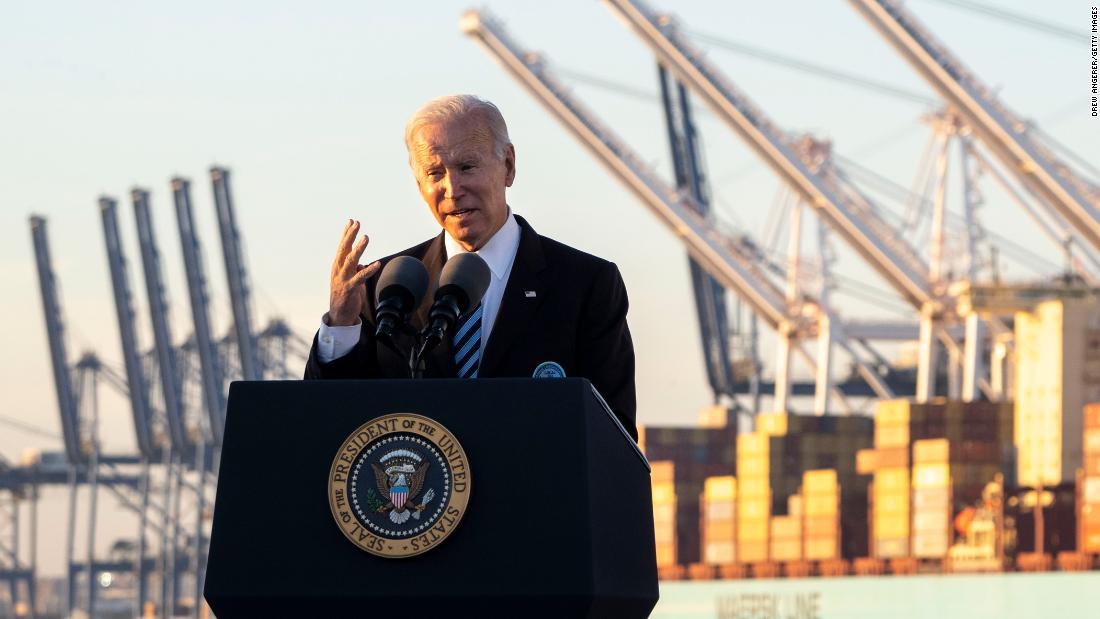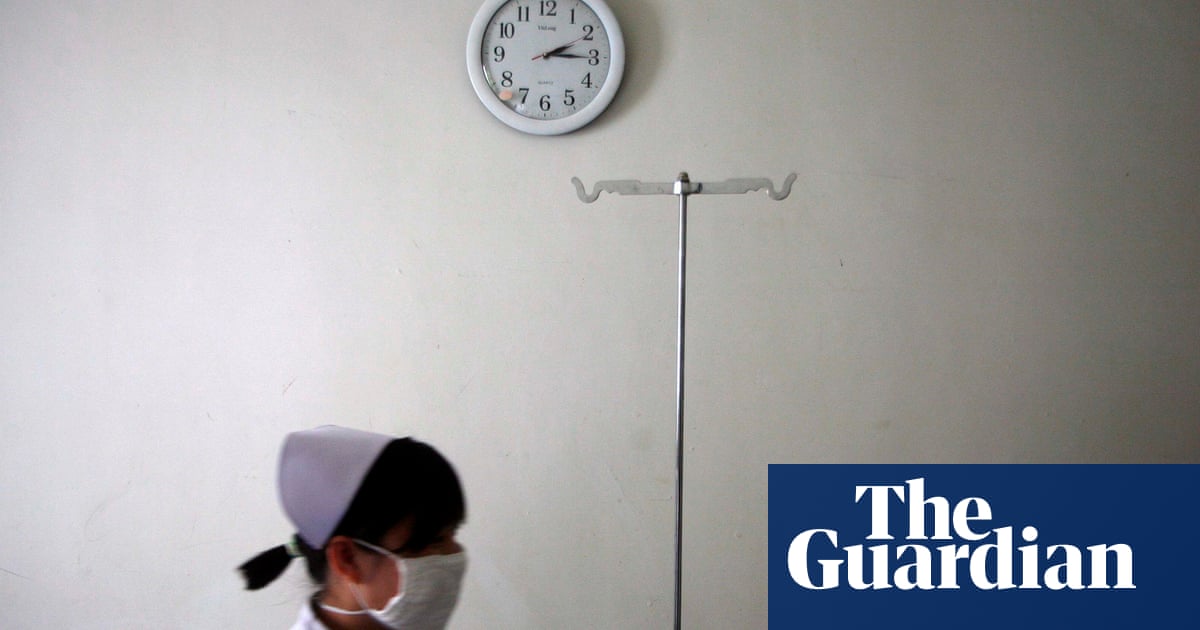(Trends Wide) — Joe Biden’s next political nightmare is inflation, a force that can destroy family budgets and political careers and is being driven by national and global factors difficult to fix quickly by a president.
Government data showing the cost of living rose 6.2% in the past 12 months, the highest rate in 30 years, set off the White House alarms on Wednesday and offered a new opportunity for Republicans to criticize Biden because of high energy prices.
The numbers underscored what all Americans already know. Every visit to the supermarket shows that staples like eggs or meat are going up in price. The gallon of gasoline it takes to get to the supermarket once a week currently averages $ 3.40 nationwide. Such pain in the pocket, following a demoralizing pandemic that is almost two years old, threatens Biden’s already weakened political position as he battles a corrosive political issue that plagues voters on a daily basis.
The White House has at times been slow to respond to intermittent red warnings on politics, for example on immigration. But there were clear signs of a change in tune Wednesday after officials spent months insisting that the higher prices were simply a transitory by-product of the pandemic. Biden first issued a statement saying it would work to cut prices. Then, on a trip to the port of Baltimore to promote his newly passed bipartisan infrastructure bill, the president went out of his way to show that he cared and understood the problem.
Biden’s message for inflation
“Everything from a gallon of gas to a loaf of bread costs more and is concerning,” Biden said. “A lot of people are still worried about the economy and we all know why. They see higher prices, they go to the store or they go online and they can’t always find what they want when they want it.”
Addressing one of the big economic problems slowing the economy – a clogged supply chain – the president did a good job in his speech explaining why a closed factory in Malaysia could make life in the United States more expensive. But the political task ahead requires a relentless daily focus and a strong repeated message that has so far not been a stronghold of the Biden White House.
Biden’s speech and his clear urgency on inflation were seen as something of a political reset as his approval ratings tumble above 40 points. All presidents face declining popularity and political changes from time to time. Those who are successful and win second terms show the ability to bounce back from tough times. Biden’s ability to do so now depends on his own political prowess and the extent to which external forces shape the politics of the next three years.
Still, his team’s quick reaction to the new data suggests that after a morale-depleting loss in the Virginia gubernatorial race and a much closer-than-expected victory in New Jersey last week, the White House he is more alert to political changes.
A more expensive Christmas season
Rising prices in stores and higher home heating costs threaten to cloud the Christmas season and make the coming winter more expensive for Americans. A less important, but still significant, effect of inflation is how it will affect Biden and the Democrats heading into next year’s midterm elections.
There are already signs that Wednesday’s report from the Bureau of Labor Statistics could once again complicate the president’s drive to pass his vast 50-50 US Senate social spending bill. West Virginia Senator Joe Manchin had been warning for weeks that an injection of at least another $ 1.5 trillion into the economy could further heat up price increases. He insisted that the threat posed by record inflation was not “‘transitory’ and is instead getting worse” in a tweet on Wednesday. “From the supermarket to the gas station, Americans know that the inflation tax is real and Washington can no longer ignore the economic pain that Americans feel every day,” Manchin wrote.
Growing political turmoil over inflation also threatens to further politicize the White House’s approach to the Federal Reserve (FED) as Biden debates whether to nominate Director Jerome Powell, appointed by former President Donald Trump, to a new term. The Fed will be a key (and independent) player in reducing inflation, possibly through interest rate hikes, but it faces the delicate task of not disrupting a recovering but still fragile labor market.
Inflation is an especially damaging political force because of its immediate impact on the well-being of voters. A rate of 6.2% is well above the levels at which policymakers can relax in the face of rising prices and threatens to wipe out wage increases as well, which would in fact give everyone a chance. the country a wage cut.
Inflation complicates recovery
Inflation complicated recovery from the pandemic due to increased demand from months of lockdown, a shortage of key commodities and raw materials, and higher levels of savings from Americans stuck at home for long periods. It has been exacerbated by manufacturing disruptions, for example in Asia. The semiconductor shortage has made items such as new cars more expensive and difficult to come by, and thus has also raised the price of used vehicles. A supply chain crisis has seen ships lining up for days to unload at California ports. The delays have been exacerbated by COVID-19 shutdowns at overseas manufacturing centers and a shortage of truckers and rail cargo capacity in the United States.
Biden has taken increasingly active steps to address these issues, for example meeting with CEOs of mail companies this week in an attempt to ensure that store shelves are full during the upcoming holiday season. But the root causes of the crisis are complex and global and will defy easy remedies. The political impact of current price rises may also be exacerbated because inflation, which stalked the economies of the developed world in the 1970s and sparked political turmoil, had been under control for decades.
Republicans pounce
None of these mitigating factors is preventing Republicans from exploiting painful rises in the cost of living and pump prices to criticize “bidenflation” and argue that the president’s ambitious political program is squandering past economic gains.
“This is a pay cut that families can’t afford,” said Republican Rep. Kevin Brady of Texas, the highest-ranking member of the House Ways and Means Committee. “It’s no wonder Americans now rank inflation alongside covid as their biggest concerns, and believe that Biden’s $ 4 trillion tax and spending drunkenness will only make prices worse.”
Rep. Liz Cheney, who has recently been praised more often than criticized by Democrats for opposing Trump’s electoral lies, also criticized the Biden administration on Wednesday for the new data.
“The Biden administration has tried, and failed, to rely on our adversaries to lower prices at the pump. Now, they are considering tapping into the Strategic Petroleum Reserve. This is wrong. We must support US oil producers so that may meet our needs, “Cheney wrote on Twitter.
The Wyoming Republican struck at the heart of a politically damaging feature of high gas prices for Biden. He has publicly urged oil-producing nations to pump more crude to lower prices. But the calls have fallen on deaf ears and run the risk of making you look weak. Similarly, Transportation Secretary Pete Buttigieg’s warnings in recent weeks that supply chain problems could linger into next year may be realistic, but they hardly inspire confidence in the administration’s ability to improve operations. stuff. And rising inflation, if it remains a drag on Americans next year, could make next November’s historically tough midterm elections even more difficult for Democrats by overshadowing their legislative victories.
But a new Trends Wide fact check contradicts claims by Republicans that the price hike is solely due to wasteful Democratic spending. Many factors, including supply chain chaos and production limits in OPEC countries, are playing into a complicated situation.
Challenges
It’s ironic, given today’s challenges, that the central premise of the Biden presidency is to make the economy more rewarding and equitable for American workers. But Biden’s multi-million dollar remedies, infrastructure projects and social spending, could take months and years to be noticed by ordinary Americans and begin to change the political atmosphere. That doesn’t mean fixing roads, creating jobs, providing home health care, free pre-kindergarten, and revolutionizing America’s power grid with low-carbon fuels won’t help the economy. But the current needs are more immediate.
And it’s not clear that Democrats have done a good enough job selling the benefits of such plans to convince most Americans that they will actually help. A new Trends Wide poll, for example, found that 58% of people don’t think Biden paid enough attention to the nation’s problems. And the problem cited by the majority of respondents (36%) was the economy, ahead of the pandemic, with 20%. Those figures suggest that to improve his political position, Biden must now move from leading the battle against COVID to rescuing a sense of economic well-being.
Still, White House Secretary Ron Klain insisted Thursday that the economy was improving specifically because of the measures taken by Biden.
“I think things are better in this country than they were a year ago with regard to covid, with regard to the economy,” Klain told Trends Wide’s Jake Tapper on “The Lead.” “We have a lot of work to do and I think voters are in show me mode, don’t tell me.”






